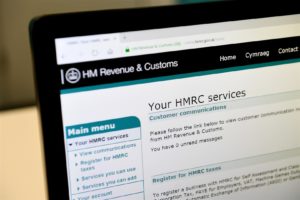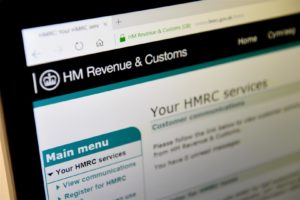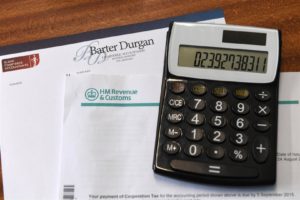 A new digital service has been launched that makes it easier to check if you have any gaps in your National Insurance (NI) record that may affect your State Pension entitlement.
A new digital service has been launched that makes it easier to check if you have any gaps in your National Insurance (NI) record that may affect your State Pension entitlement.
The service is called Check Your State Pension forecast and can be accessed via GOV.UK or the HMRC app. You will need to register for or login to your Personal Tax Account to find the service.
The forecast details your NI record by tax year and identifies if there are any years that are not counting towards your State Pension entitlement. The service also shows the details of any voluntary NI contributions that you could make to increase your forecast.
The service allows you to choose which years you would like to pay voluntary contributions for and then takes you through to a secure payment facility to make payment.
If you think you may have gap years in your contributions, it is important to check sooner rather than later. Because of new State Pension transitional arrangements, the deadline for paying voluntary NI contributions was extended to 5 April 2025.
 HM Revenue and Customs (HMRC) is running a campaign to help people avoid being caught out by tax avoidance schemes. This is particularly relevant to those who are contractors, agency workers, or are working through an umbrella company.
HM Revenue and Customs (HMRC) is running a campaign to help people avoid being caught out by tax avoidance schemes. This is particularly relevant to those who are contractors, agency workers, or are working through an umbrella company.
Tax avoidance schemes are schemes designed to bend the rules of the tax system in a way that was not intended. They usually involve contrived transactions whose only real purpose is to artificially reduce the amount of tax someone pays. It is different from effective tax planning.
Being caught out by a tax avoidance scheme can be expensive. People who use them often end up paying interest and penalties in addition to the tax they should have paid. This is on top of the fees that may already have been paid to the person who sold the scheme.
Therefore, it makes sense to check your working arrangements and contract to make sure that you do not get caught up in a scheme that might land you a big tax bill somewhere down the line. This applies whether you are being considered as self-employed or employed.
Red flags include receiving more money in your bank account that what is shown on your payslip, or receiving untaxed payments that are described as loans or capital advances.
You should be especially careful if a scheme is described as ‘HMRC approved’ since HMRC does not approve schemes.
HMRC provides a risk checker tool that you can use to find out if your employment arrangements might involve tax avoidance. This can be accessed here: https://www.gov.uk/guidance/check-if-you-are-at-risk-of-tax-avoidance
We are expert tax advisers and can help you with effective tax planning, however please be assured that we do not offer tax avoidance schemes. If you think that you may have been caught out by a tax avoidance scheme and would like some advice, please call us and we will be happy to help you.
See: https://dontgetcaughtout.campaign.gov.uk/tax-avoidance/
 HM Revenue and Customs (HMRC) has published guidance on a new online service to help businesses with their import duties and VAT accounts.
HM Revenue and Customs (HMRC) has published guidance on a new online service to help businesses with their import duties and VAT accounts.
If you or your business are involved in importing goods into England, Scotland, Wales and Northern Ireland, you can use the new service to:
• Get your import VAT statements and certificates;
• Manage your payment accounts; and
• Manage or view authorities.
This new service should help to bring everything you need into one place.
To use the service, you need to have a Government Gateway user ID and password, and you must be subscribed to the Customs Declaration service. If you need any help registering with HMRC, please do not hesitate to contact us! For more information and to log in, please see: https://www.gov.uk/guidance/manage-your-import-duties-and-vat-accounts
 Prior to the tax year starting each April 6th, HM Revenue and Customs (HMRC) issues new tax codes to employees, usually where there is a change of tax code.
Prior to the tax year starting each April 6th, HM Revenue and Customs (HMRC) issues new tax codes to employees, usually where there is a change of tax code.
These tax codes, a series of letter and numbers, allow employers to deduct the right amount of tax to be deducted from each employee when the payroll is run. That is, unless the tax code isn’t correct. Therefore, it pays to check that the tax code has been calculated correctly.
The tax code notice usually sets out what has been included. For instance, it will usually include a person’s annual tax-free personal allowance.
What do the numbers and letters making up the tax code mean?
Numeric component
This usually represents the amount of tax-free income an individual is entitled to in a tax year. For example, a tax code of 1257L indicates a tax-free allowance of £12,570 for the tax year.
Letter component
This letter indicates specific circumstances or adjustments that apply to the individual’s tax code. Some common letter codes include:
• L – the individual is entitled to the basic tax-free allowance.
• M – marriage allowance is being transferred from a spouse or civil partner.
• K – additional deductions are being made from the individual’s pay, such as underpaid tax from previous years or tax on benefits in kind.
It is important to check that a tax code is correct to avoid overpaying or underpaying tax.
If an employee believes their tax code is incorrect or needs adjusting, such as due to a change in personal circumstances or income, they can contact HMRC directly to request a review or update of their tax code. HMRC will then make any necessary adjustments and send an updated tax code to use in subsequent payroll calculations.
If you need any help with your own or your employees’ tax codes, please do not hesitate to contact us. We will be very happy to help you.
 The new tax year began on April 6th and for employers running monthly payrolls, the March pay run was be the last of the 2023/24 tax year.
The new tax year began on April 6th and for employers running monthly payrolls, the March pay run was be the last of the 2023/24 tax year.
Some things you will need to make sure you do and when you need to do them are listed below:
• Send your final payroll report of the year to HM Revenue and Customs (HMRC). You may need to mark in your payroll software that this is the final submission for the tax year.
• Update your employee records. This may include new tax code notices. If your software automatically updates tax code notices, then check these to make sure they are accurate.
• Update your payroll software. If you use a desktop application to run your payroll then it will need updating from April 6th or whenever your software supplier tells you to do so. If you use a cloud-based solution to run your payroll it is unlikely that you will need to run an update, but you should check.
• Give your employees a P60 by May 31st at the latest.
• Report employee expenses and benefits by July 6th at the latest.
If you need any help with your end-of-year payroll procedures or would like help or advice on preparing your report of employees expenses and benefits, please get in touch with us and we will be happy to help you.
 With the tax year ending on April 5th, now is a very good time to check whether sharing unused tax allowances with your partner could save you some money.
With the tax year ending on April 5th, now is a very good time to check whether sharing unused tax allowances with your partner could save you some money.
HM Revenue and Customs (HMRC) say that March is the most popular month for Marriage Allowance applications. Almost 70,000 couples applied in March last year. As there is also the option to backdate their claim for the previous 4 tax years, eligible couples who have not previously claimed could receive a lump sum payment of more than £1,000.
Marriage allowance allows individuals to transfer up to 10% of their tax-free Personal Allowance to their husband, wife, or civil partner. For the 2023/24 tax year, this means a maximum amount of £252 could be available to those who qualify.
In order to benefit, either you or your partner must have an annual income of less than the Personal Allowance, which is currently £12,570. And the higher-earning partner’s income must be between £12,571 and £50,270. If you live in Scotland, the higher-earning partner’s income must be between £12,571 and £43,662.
To find out if you are eligible, you can use HMRC’s online calculator at https://www.tax.service.gov.uk/marriage-allowance-application/benefit-calculator
If you need any help working out whether you are eligible or in applying for the allowance, please do not hesitate to contact us!
 The National Cyber Security Centre has issued some new guidance on “Using online services safely.”
The National Cyber Security Centre has issued some new guidance on “Using online services safely.”
To avoid having to set up and manage their own IT infrastructure, many small businesses use online or cloud services. For instance, these might include email, online storage, online accounting and managing of invoicing, website hosting, and social media.
The guidance is designed to help small businesses reduce the likelihood of cyber attacks when using these services.
The guidance provides help on:
- Choosing a good service,
- Backing up critical data,
- Protecting the domain name you use for your website and email addresses,
- Creating separate user accounts and securing them,
- Protecting your admin accounts,
- Defending against malware,
- Using the security features that are built into the service, and
- Recovering a hacked account or service.
If you are a small business without the resources to employ a dedicated IT specialist, this advice can help you to consider and cover off the risks you face when using online services.
For the guidance, see: https://www.ncsc.gov.uk/collection/using-online-services-safely
 Value Added Tax (VAT) is a significant consideration for businesses. It impacts your cash flow, the amount of admin work needed, and even your overall profitability. One option available to businesses – with a VAT exclusive turnover of £150,000 or less – is the VAT Flat Rate Scheme (FRS), which offers a simplified approach to VAT accounting. However, deciding whether to adopt this scheme requires careful consideration of its benefits and drawbacks.
Value Added Tax (VAT) is a significant consideration for businesses. It impacts your cash flow, the amount of admin work needed, and even your overall profitability. One option available to businesses – with a VAT exclusive turnover of £150,000 or less – is the VAT Flat Rate Scheme (FRS), which offers a simplified approach to VAT accounting. However, deciding whether to adopt this scheme requires careful consideration of its benefits and drawbacks.
The VAT Flat Rate Scheme operates by applying a fixed percentage to your turnover to determine the VAT payable to HM Revenue and Customs (HMRC). This fixed rate varies depending on the industry sector that your business operates in. While this simplicity can be appealing, it’s crucial for businesses to evaluate whether this scheme aligns with their specific circumstances.
The advantages
One of the primary advantages of the VAT Flat Rate Scheme is how simple it is to operate. Unlike traditional VAT accounting, where businesses need to track VAT on sales and purchases separately, FRS simplifies this process by applying a flat rate to the total turnover. This can save time and reduce the administrative burden, and if you run a smaller business this can be a big help!
Businesses under the VAT Flat Rate Scheme can also benefit from potentially paying less VAT to HMRC compared to the traditional accounting methods of accounting for VAT. The scheme allows for your business to keep the difference between the VAT charged to customers and the VAT paid to HMRC, which can provide an additional margin for your business.
The disadvantages
However, while the VAT Flat Rate Scheme offers simplicity and potential cost savings, it may not be suitable for all businesses. One of the notable drawbacks is the inability to reclaim VAT on purchases, except for certain capital assets over £2,000. This means that if your business buys in a lot of supplies where you pay VAT on them, you may not benefit from the scheme as much as others.
Additionally, the fixed rates provided by HMRC may not always accurately reflect your business’s specific VAT position. While these rates are designed to approximate the average VAT payable for different industries, businesses with atypical cost structures or profit margins may find themselves disadvantaged by the scheme.
Furthermore, you need to consider the future growth of your business and how this might impact your VAT liabilities under the Flat Rate Scheme. As turnover increases, the fixed percentage applied to turnover may result in higher VAT payments compared to the traditional methods of accounting for VAT. This could potentially erode the scheme’s cost-saving benefits.
Before deciding whether to adopt the VAT Flat Rate Scheme, it is important that you carefully evaluate your current VAT position, including the proportion of VATable sales and purchases, as well as any potential future changes in turnover.
We have tools that can help you decide whether joining or leaving the Flat Rate Scheme is a good choice for your business. Please feel free to get in touch with us. We would be happy to help you!
In business, staying ahead of, or at least up with, the curve is crucial for success. Over recent years, one of the revolutionary tools that has transformed the way businesses manage their finances is cloud accounting. Cloud accounting offers many benefits over traditional, on-premise accounting systems. Let’s discuss some of them.
What are the benefits of cloud accounting?
Accessibility
Traditional accounting systems often tie businesses to a specific location, requiring users to be physically present in the office to be able to access financial data. Cloud accounting frees a business from this constraint. It gives users access to real-time financial information anytime, anywhere. This kind of flexibility and access can be very valuable, allowing teams to collaborate and decisions to be made regardless of location.
Cost efficiency
Cloud accounting operates on a subscription-based model, avoiding the up-front software licence costs usually involved in traditional accounting systems. Cloud accounting systems also typically receive automatic updates and maintenance, which can reduce the demand for IT support.
Security
The security of financial information is naturally a top concern for a business. Cloud accounting providers use advanced encryption measures to ensure that sensitive information is kept safe. These providers usually have dedicated teams focused on monitoring and addressing security threats too. This provides a level of protection that may be difficult to replicate on your own premises. Cloud accounting systems also include robust backup processes, which reduce the risk of losing data because of hardware failing.
Automation
With many cloud accounting systems – or by means of subscribing to linked automated data entry software – data entry can be automated. By uploading a copy of the invoice or receipt the software can ‘read’ the data and create the entry needed by the accounts system. While such systems rarely achieve 100% accuracy, the time-savings can be considerable and allow those dealing with finance to concentrate on more strategic work.
The benefits of cloud accounting can be transformative to a business and give you a competitive edge in today’s dynamic market. Embracing this technology is not just a trend but can be considered a strategic move towards a more agile, responsive and prosperous business.
We have experience of various cloud accounting systems. If you would like an assessment of your current system to see how cloud accounting might help you, please do not hesitate to contact us!
HM Revenue and Customs (HMRC) has recently published updated its guidance on how to identify tax scams made by phone, email, or text.
It advises that if you receive a phone call, email, or text message that purports to be from HMRC, it is likely to be fake if it:
- rushes you;
- is threatening;
- is unexpected;
- asks for personal information, such as bank details;
- tells you to transfer money; or
- offers a refund, tax rebate or grant.
HMRC also confirms what it will and won’t do if it contacts you.
By phone:
HMRC will never threaten arrest or leave a voicemail threatening legal action.
By text:
HMRC does send text messages that may include a link to GOV.UK information or HMRC webchat. HMRC staff will never ask for personal or financial information. So, a text
message that offers a tax refund in exchange for personal or financial details cannot be from it.
By WhatsApp:
If you have subscribed to the UK Government Channel, you may receive occasional tax-related reminders, but you will not be able to reply. HMRC doesn’t otherwise use WhatsApp to communicate with taxpayers.
HMRC does sometimes use QR codes in its letters but only to take you to guidance on GOV.UK, but it confirms that you would never be taken to a page that requires you to provide
personal information. QR codes might also be used after you have already logged in to redirect you to, say, your bank login page.
You can check whether a phone call, email or text is genuine by consulting HMRC’s website here: https://www.gov.uk/government/collections/check-a-list-of-genuine-hmrc-contacts
Guidance, including some examples of HMRC related phishing emails, suspicious phone calls and texts is available here: https://www.gov.uk/government/publications/phishing-and-bogus-emails-hm-revenue-and-customs-examples/phishing-emails-and-bogus-contact-hm-revenue-and-customs-examples




